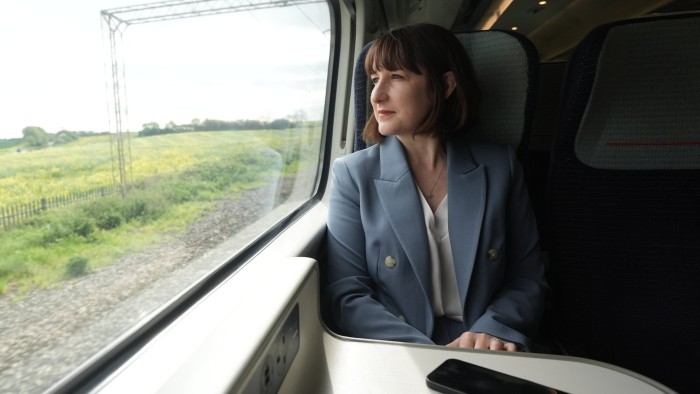Unlock the Editor’s Digest for free
Roula Khalaf, Editor of the FT, selects her favourite stories in this weekly newsletter.
Rachel Reeves has insisted she will not give “false hope” to proponents of building a new railway line north of Birmingham as an alternative to the cancelled leg of HS2.
The chancellor said the government’s transport focus is “connectivity within the north of England” rather than on the West Coast mainline.
“What I don’t want to do, which is what the previous government [did], is give people false hope,” she told the Financial Times.
Reeves was speaking as she promised to “hardwire” regional growth into the government’s objectives, saying that past Conservative governments failed to keep their pledges to “level up” the economy.
That idea for a new rail link between Birmingham and Manchester was tabled by Labour mayors in the two cities in September. It included a proposal to part-fund the project through the private sector in order to limit the cost to the state.
Louise Haigh, who was transport secretary at the time, said it was “perfectly viable to explore” using such private funding, while government figures have said a feasibility study will be launched.
Speaking as she travelled up to meetings with cabinet members and mayors in north-east England, Reeves insisted she was “not against . . . private investment in transport projects”.
She added that any northern transport proposals would be spelt out in the Comprehensive Spending Review, expected early next summer, but declined to outline what they might include.
Under the Conservatives from 2019 onwards, the government promised to “level up” the economy of the UK, which has for many years relied on higher productivity in south-east England.
Reeves said there was “nothing wrong” with the premise, but that “there was never any real substance behind it”.
Her changes to the fiscal rules in October’s Budget represented a “transformational” approach to Treasury investment decisions outside of London, she said, because new capital investments would now be accounted for as assets rather than solely as liabilities.
She also cited the National Wealth Fund, a £5.8bn pot intended to make growth-focused capital investments, even though this is smaller than the £7.3bn originally promised in the election.
Reeves said the policies represented “two big bets” being made by Labour in the economy outside of London and the South East.
The National Wealth Fund’s focus on energy projects, she added, was itself a “levelling up” policy.
“The truth of that is that most of those [projects] are outside London and the South East,” she said, adding: “Whether it is batteries, or ports, or offshore wind, or carbon capture, or green hydrogen, those are jobs and industries that will be located outside of London, actually often in the north of England.”
Reeves was speaking after Prime Minister Sir Keir Starmer outlined six “milestones” as measures of the government’s progress on its wider goals, seen partly as levers with which to force Labour’s agenda through Whitehall. The targets include an increase in living standards and the construction of 1.5mn new homes.
Many in government view them as indicative of the Treasury’s likely departmental priorities in the chancellor’s forthcoming spending review.
However, Reeves denied that areas such as transport and local government — which do not feature explicitly in the milestones — may struggle to argue for investment as a result.
“We’re thinking about things across government departments, not a siloed approach,” she said.
“You’re not going to build 1.5mn homes without more transport infrastructure to go alongside them. You’re not going to lift real household disposable income unless people are able to get to good jobs paying decent wages. So transport is a key enabler.”





Leave a Reply